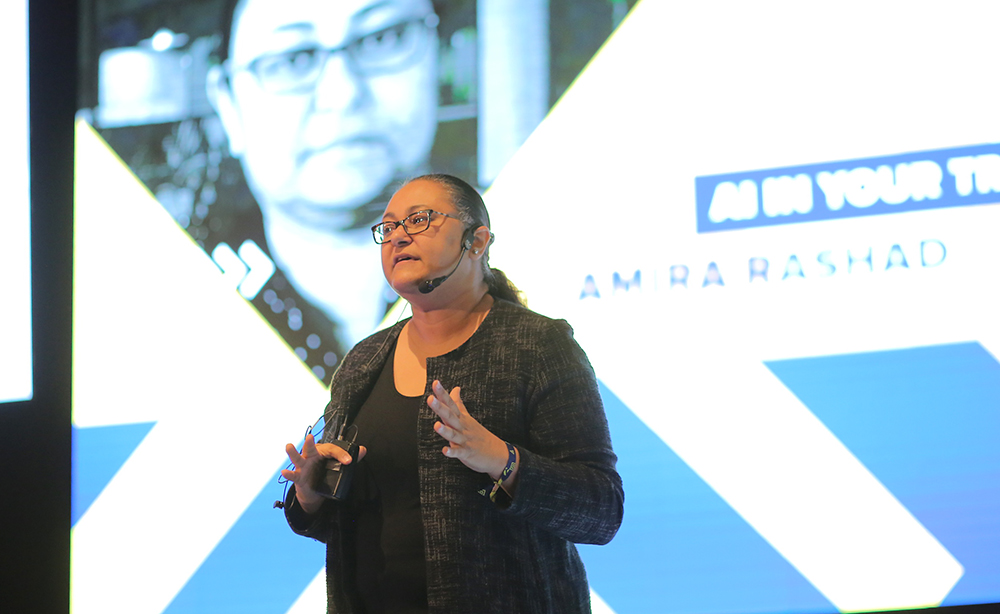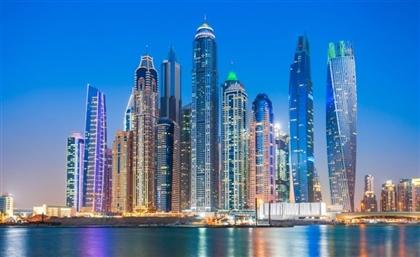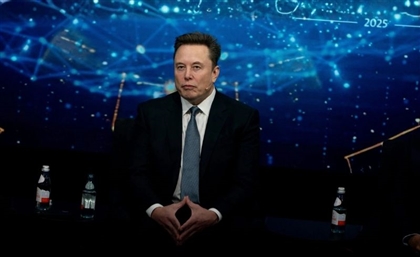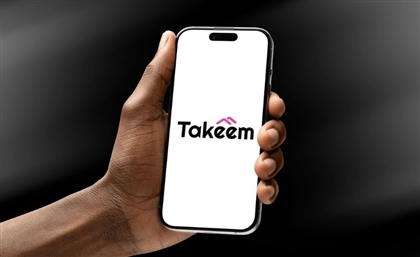Can Your Fridge Turn into a Big Brother? Meet the Entrepreneur Bringing AI to Every Home
She was Facebook's Head of Branding in the Middle East and produced web forays for superstars Ahmed Helmy and Mohamed Henedy. Now, Amira Rashad is redefining grocery shopping - by introducing Artificial Intelligence in every fridge.

Amira Rashad appears as a force of nature. A relentless advocate for women in tech, an unstoppable techhead, and self-proclaimed global citizen, she not only led the digital branding and advertising at Facebook MENA and Yahoo in Middle East, Africa and Turkey, but was also a pioneer of original Arabic web series, having produced web hits for superstars Ahmed Helmy and Mohamed Henedy.
Today, as she sits at the Board of Directors of Techwadi, which builds bridges between Silicon Valley and the Arab World, and MIT Enterprise Forum Pan Arab, the entrepreneur sets off to break all rules and re-imagine daily life, introducing frontier tech into something as seemingly banal as fundamental: the fridge. Between the panels and talks at the RiseUp Summit, Rashad sits down to unveil how AI could transform not only grocery shopping, but the entire human experience through her startup BulkWhiz.
How did the idea come up to use AI for something like grocery shopping?
I’m an Egyptian-American and I have lived in the States for most of my life, and there the concept of bulk for groceries is a very prevalent one. When I moved to the Middle East with my family to Dubai I realised that even though family sizes are big (the average is 5+ in the region) there is no such thing as bulk, so I have to go in and buy toilet paper in twos for example, while my need is really 24, and that is mostly supply-driven, because most of the retail stores in the region are still medium sized and do not have the resources or the cash flow to do bulk.
One of the most painful moments of my week is when I sit down and put together that shopping list. So, if its there and it actually knows my needs, why would I want to focus time and energy on that?
Even when you go up the chain and talk about modern trade or hypermarkets and big stores, here the hypermarkets are smack in the middle of the most expensive malls; therefore their shelf space is very expensive and the last thing they want to do is put big old boxes on their shelves.
When you look at the demand side, people don’t like to do the math. So if I ask you for example, how much do you use of X, Y or Z grocery items in your home? You might know one or two things but you are not going to know everything. And if I tell you buy a bigger pack of it or more packs of it, you’re going to look at me very suspiciously and say she’s trying to overload me, why would I do this, it’s going to sit in my kitchen forever. So, AI is a way of doing this math for you, of personalising messy things in life like groceries - which depend on a multitude of different things, like the weather or school season.
Bulk shopping is very related to the Arab culture, right?
Very much; the concept of wholesale for consumers is not a new one. We used to have multiple models here and across the region by the way but they were brick-and-mortar stores and they were not doing it based on data they were doing it based on the very natural and correct hunch that people want to save, and you can save by buying in bulk and this intermediating the sourcing value chain. All we’re doing is following in their footsteps, and applying the new technology of our time in order to make this more efficient.
The thing with AI is that there are certain things that just your online behaviour is not going to be enough for. You need to be able to marry online behaviour with exogenous factors in your environment and constantly learn from them. It isn’t like regular programming where X + Y + Z is going to be an output that is predetermined, no. Basically, the AI system captures your data and it is constantly learning from that data, so that’s what we’re trying to do. So it is ‘my shopping list’ called Amira’s list, and from my interaction with it, the machine learns. So tomorrow, if I snoozes an order for a month you will know that I’m overstocked, if you know that I changed my quantities you will know that my family needs have changed and all of that is continuously teaching the AI engine how to serve me better.
You need to be able to marry online behaviour with exogenous factors in your environment and constantly learn from them.
It sounds like Big Brother…
You know it is, in many ways. The key with data is actually learning how to make it serve you and not vice-versa. There are two aspects of the data; there’s the data that actually serves the consumer, but there’s also the data (from an AI perspective) that helps businesses operate more efficiently. I’ll give you an example: today, when you make an order, I’m going to go out and source that order for you, in doing so I interact with many suppliers and the data allows me to know who is the most efficient one, and where to go in order to serve you in a more efficient way.
Do you see a future where these kind of robots can take over other functions that are being done by perhaps either a personal shopper or maid at home?
Certain aspects of it, yes absolutely. There are a lot of things that moms or dads today absolutely hate doing. Yours truly, one of the most painful moments of my week is when I sit down and put together that shopping list. So, if it's there and it actually knows my needs, why would I want to focus time and energy on that? So yes, people’s jobs will change, be it mom’s job or an office manager or a personal buyer, or even dad who’s coming home from work very late and the last thing he wants to do is go buy a bunch of diapers.
Do you operate in the US and Dubai?
We are Dubai-based, But our engineers are based out of Cairo. They wear double-hats, data science hats and machine-learning hats, and they are every bit as competitive as our counterparts in the US, so there are very impressive skillsets that come out of Egypt.
Are you looking forward to the Ministry of Artificial Intelligence that was just appointed in the UAE?
That was something that brought me a smile from ear to ear. Anytime you live in an environment where you government pretty much a) understands and b) is proactively involved in facilitating technology that will enable bigger and better things for a community - you can’t help but be excited about it. The trick is, how do you actually scale that, and how do you bring more young people into that fold, to take up many of those new jobs that are going to come out?
Having broken that kind of line and innovating and disrupting an industry, what’s next for you?
As with any startup - and we’re a relatively new startup; we started in 2017 - so this year, our goal is to actually scale our business, once we have actually proved it in the UAE, and we are now looking to move to bigger markets like Saudi Arabia and Egypt. The average family size across the region is 5+ so the concept of bulk is relevant, the question is, how do you make this within arm’s reach for every mom and dad? That is our next challenge and we’re looking forward to it.
Photos and video: @MO4Network's #MO4Production.
- Previous Article How Can We Make AI Conscious? We Ask the Engineers of the Future
- Next Article 8 Wonder Women Entrepreneurs Crossing Milestones in Jordan




















